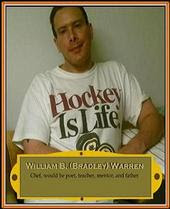The writing is on the wall, and it's been smack-dab in front of our eyes for years, it's just that the fringe media, in bed with a White House chock full of born and bred social radicals who are placing their bet on a most elusive, like-minded President. Don't think for one moment that anything that spews out of this administration of hard-core fanatics will be anywhere near the truth.
Let's go back to the campaign, well before the election when Barack Obama quoted,
"What I have to say in this book is not the arrogance of unsolicited advice. It is the experience and counsel that so many young people have questioned me about through all-night sessions on hundreds of campuses in America. It is for those young radicals who are committed to the fight, committed to life." In the first chapter's opening paragraph, Alinsky writes,
"What follows is for those who want to change the world from what it is to what they believe it should be. The Prince was written by Machiavelli for the Haves on how to hold power. Rules for Radicals is written for the Have-Nots on how to take it away".
Do you hear that? It sounds like Barack Obama has learned to lie, cheat, steal, and most especially, defame anyone or thing that stands in the way of overtaking the greatest nation of all-too gracious people of all time. That, my friend, is the plan. Make no doubt about it, what we're experiencing is one big
desperate plan.
The Chicago Way is NOT the American way. Let's grind this loose cannon into the hard, dry ground. And his slew of buddies too. Why not? He's laughing as he does it to us.
YOU LIAR!
The Organization continues;
Alinsky codified and wrote a clear set of rules[3] for community organizing. His rules for radicals are now used as key tactics to learn in the training of new
community organizers.
In a separate chapter he suggests that the perennial question, "Does the end justify the means?" is meaningless as it stands: the real and only question regarding the ethics of means and ends is, and always has been,
"Does this particular end justify this particular means?"
Alinsky continues by stating several rules of the ethics of means and ends:
* The judgment of the ethics of means is dependent upon the political position
of those sitting in judgment.
*
In war the end justifies almost any means.
* Judgment must be made in the context of the times in which the action
occurred and not from any other chronological vantage point.
* Concern with ethics increases with the number of means available and vice
versa.
* The less important the end to be desired, the more one can afford to engage
in ethical evaluations of means.
* Generally, success or failure is a mighty determinant of ethics.
* The morality of a means depends upon whether the means is being employed at a
time of imminent defeat or imminent victory.
* Any effective means is automatically judged by the opposition as being
unethical.
* You do what you can with what you have and clothe it with moral garments.
* Goals must be phrased in general terms like "Liberty, Equality, Fraternity,"
"Of the Common Welfare," "Pursuit of Happiness," or "Bread and Peace."
These rules of the ethics of means and ends are only one chapter of his book,
totally distinct from his "clear set of rules for community organizing." For
example, his rule 12 is "pick the target, freeze it, personalize it, and
polarize it."
* Rules for Radicals: A Pragmatic Primer for Realistic Radicals (1971) Random
House, ISBN 0-394-44341-1; Vintage books paperback: ISBN
0-679-72113-4
1. ^ Purpose for writing Rules for Radicals per Alinsky
2. ^ Rules for Radicals, by Saul Alinsky
3. ^ Alinsky, Saul [citation needed], Semcosh.org
I'll be back with some damning evidence that should make any American sick.
Maybe deadly sick.

